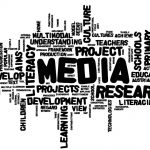Following is a piece by Huma Yusuf published in Dawn talking about how important it is for the media to play an active role in a democratic transition taking place in Pakistan right now.
The excerpt from Mark Mazzetti’s new book, The Way of the Knife: The CIA, a Secret Army, and a War at the Ends of the Earth, published last week by the New York Times created quite the stir.
Revisiting the events surrounding Raymond Davis’ trial and release, the piece highlighted the dysfunctional nature of the US-Pakistan relationship, particularly the fact that it is dominated on both sides by intelligence agencies with diverging — indeed, directly contradictory — agendas. But the article also implicitly highlighted problems with Pakistan’s independent media.
Those who remember media coverage of the Davis saga will recall hysteria and a barrage of accusations against all and sundry.
Before our authorities or the US government had confirmed Davis’s connection with the CIA, sections of the media had denounced him as a spy and started railing against the civilian government, particularly then US ambassador Husain Haqqani, for issuing visas that, they said, had unleashed an army of Blackwater agents throughout Pakistan (never mind other outlandish theories, about Davis being a double agent working for both the CIA and the Pakistani Taliban or allegations that he was sharing documents about US fissile nuclear material with Al Qaeda to spark another world war).
During Davis’s incarceration, some talk show hosts and columnists bayed for blood, calling for him to be tried and hanged according to Pakistani law. They also denounced the Zardari government for maintaining relations with the US, claiming politicians were selling out Pakistani blood in exchange for civilian aid under the Kerry-Lugar-Berman Act.
Similar vitriol against the civilian administration continued once Davis was released following payment of ‘blood money’ to the family members of those he had shot.
Mazzetti’s piece confirms US efforts to increase CIA presence in Pakistan in order to monitor Lashkar-i-Taiba activity as well as locate former Al Qaeda chief Osama bin Laden. But it also shows how US-Pakistan relations and the handling of the Davis incident, including his release, were strictly in the domain of the security establishment.
The pressures media professionals face in terms of reporting on foreign policy or national security issues, and the fact that truth comes at the expense of media licences or journalists’ lives, are well-known.
But it is worth asking why our free media — as the media in some other countries — is so easily taken with promoting a particular nationalist narrative, irrespective of facts. It is one thing to self-censor in the face of coercion; it is another to actively participate in spreading misinformation and reactionary rhetoric, particularly when that rhetoric is in support of an ideological cause or political agenda, and that too in service of a single institution against others.
As diverse and feisty as they are, Pakistan’s independent outlets have not cast off the historic role of broadcast media in the country: to perpetuate a narrative that serves national interest as defined by the security establishment. As such, sections of our so-called free media remain a tool, one that was used to great effect during the Davis saga, following the 2008 Mumbai attacks and after the 2011 Abbottabad raid.
Ironically, media proliferation — which should boost truth-telling, debate and critical questioning — has instead distracted from back-end shenanigans.
The media amplifies nationalist narratives that cloak the security establishment’s contradictory policies, particularly vis-à-vis the US: while the security establishment courts Washington, the media whips up public sentiment and places the blame, as it were, for Pakistan’s flawed engagement with the US on civilian actors.
Gen Pervez Musharraf’s admission last week that the Pakistan Army approved certain drone strikes, for which the coalition government has since taken much flak, further highlights this double speak.
This strategy served our authorities well in earlier negotiations with the US, particularly as resultant anti-American public sentiment consolidated Pakistan’s bargaining position in Washington. Former US diplomats Teresita Schaffer and Howard Schaffer have described how the media is used as a pawn of foreign relations: officials cite stories from the media to argue that Pakistan cannot do something Washington wants, or to pressure US officials to adopt a particular course of action. But the strategy has also discredited too many civilian actors in the public’s opinion, a factor that matters at election time.
To the media’s credit, the situation is improving. Journalists have taken a strong stance on several issues, including security force conduct in Balochistan, albeit taking a cue from the judiciary. And the army chief’s February 2013 briefing with journalists, aimed at discrediting civilian politics in the run-up to elections, received a measured response in print, if not on the airwaves.
With historic polls ahead, the era of uncritical narrative-making should be declared over. The media must stick to the facts and ask difficult questions if it is to play a role in this democratic transition. And it should use its plurality to its advantage: multiple media outlets can present a united front on sensitive issues given that across-the-board censorship is almost impossible in the present context. Outlets can also play off each other to introduce alternative narratives.
It would be a shame if the media continues to be a distracting screen, keeping the real dealings of the powers that be out of view, while misleading the public.
The writer is a freelance journalist.
![]()






